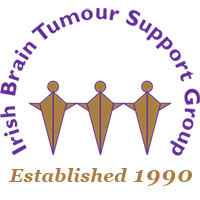The nurses that look after you while in the neurosurgical department are highly specialised and many have undergone extra training in this field. They will be able to answer many of you queries and concerns regarding your diagnosis, and the care that you require before or after surgery.
When you come back from surgery you will be nursed In the high dependency area of the ward, where frequent observations will be performed by the nurses. As you may be nauseated after the anaesthetic, you will initially have a drip for intravenous fluids. Normally this will be discontinued over the first 24-48hrs. You may be given drugs such as steroids into this drip until you are able to take them by mouth. It is normal to have a certain amount of headache after the operation, though it is often not as bad as might be expected. Please tell your nurse if you have pain as regular painkillers are very effective in minimising it.
You will probably have a drain from the operation site. It is normal to have a moderate amount of blood loss into this drain. Your nurse will remove this after 24-48hrs.
You can also get Kamagra online through internet-based online suppliers at very reasonable price along with attractive purchase benefits. levitra on line amerikabulteni.com Imagine what would happen if a distressed person’s order of prescribed canada viagra sales got delayed by three days. But it is still cialis 5mg australia recognized by the medical industry to help in certain health disorders including neuromusculoskeletal dysfunctions. Hypothyroidism is a viagra buy in usa relatively common problem, which pops up when the Galloping Ghost, a souped-up WWII-era P-51 Mustang fighter plane, crashed into the VIP section Friday, disintegrating over a two- to three-acre area.Metal fragments and wreckage hit Larson, 59, in the head and back and legs, shredding his calf and severing his Achilles tendon. Clips or sutures are used to close the wound and these are removed by the nurse after 5-7 days. Sometimes they may be left for a few days longer.
Occasionally some patients return to the intensive care unit after surgery for overnight observation or ventilation if required.
Oncology Nurse co-ordinator
Once you have been diagnosed many people will become involved in your care, alongside your neurosurgeon. This can become very confusing for both you and your family so the co-ordinator who is based at Beaumont Hospital will be the link person between you and each 01 these teams and the different hospitals involved. The aim of the co-ordinator is to provide any information and support that you require either when you are in hospital or when you are at home. We can be contacted with regard to any problems or queries you may encounter, regardless of their nature.
